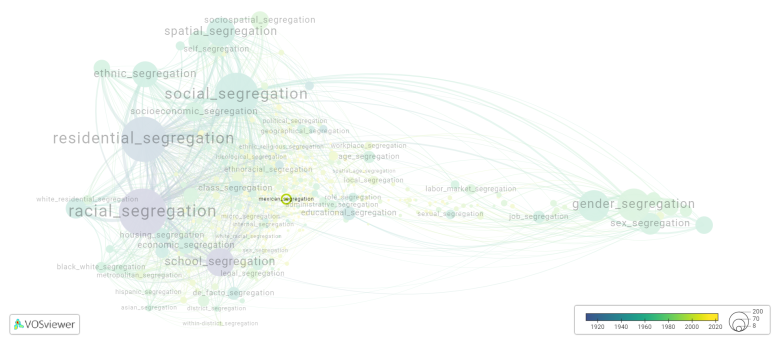Mexican segregation
Date and country of first publication[1][edit | edit source]
2009
United States
Definition[edit | edit source]
Mexican segregation refers to the historical and ongoing separation and discrimination faced by Mexican individuals and communities in various aspects of society. It can be seen in several areas, including education, housing, employment, and public services.
During the early 20th century in the United States, Mexicans faced segregation and discrimination similar to other minority groups. They were often forced to attend racially segregated schools and were subject to separate public facilities, such as restrooms and drinking fountains. Mexicans also experienced exclusionary housing and employment practices.
One notable example of Mexican segregation is the forced repatriation during the Great Depression. Many Mexicans and Mexican Americans, including U.S.-born citizens, were targeted for deportation and sent to Mexico, regardless of their immigration status. This led to the separation of families and the loss of homes and livelihoods.
Today, although explicit segregation practices are illegal, Mexican communities still face segregation in more subtle ways. For example, neighborhoods with a predominantly Mexican population may lack access to quality schools and other resources. Employment discrimination and the wage gap also persist. Additionally, issues such as language barriers and cultural differences contribute to social segregation and exclusion.
It is important to recognize and address the historical and ongoing effects of Mexican segregation to promote equality and social justice for all individuals, regardless of their ethnic background. Efforts to promote integration, equal access to education, employment opportunities, and housing are vital in combating Mexican segregation and ensuring equal rights and opportunities for everyone.
See also[edit | edit source]
Related segregation forms[edit | edit source]
Mexican segregation is frequently discussed in the literature with the following segregation forms:
This visualization is based on the study The Multidisciplinary Landscape of Segregation Research.
For the complete network of interrelated segregation forms, please refer to:
References[edit | edit source]
Notes[edit | edit source]
- ↑ Date and country of first publication as informed by the Scopus database (December 2023).
At its current state, this definition has been generated by a Large Language Model (LLM) so far without review by an independent researcher or a member of the curating team of segregation experts that keep the Segregation Wiki online. While we strive for accuracy, we cannot guarantee its reliability, completeness and timeliness. Please use this content with caution and verify information as needed. Also, feel free to improve on the definition as you see fit, including the use of references and other informational resources. We value your input in enhancing the quality and accuracy of the definitions of segregation forms collectively offered in the Segregation Wiki ©.
Mexican segregation appears in the following literature[edit | edit source]
Nájera J. (2009). Practices of faith and racial integration in South Texas: A case study of Mexican segregation. Cultural Dynamics, 21(1), 5-28. https://doi.org/10.1177/0921374008100405
Nájera J.R. (2015). The borderlands of race: Mexican segregation in a South Texas town. The Borderlands of Race: Mexican Segregation in a South Texas Town, 1-183. University of Texas Press.https://doi.org/10.7560/767553

